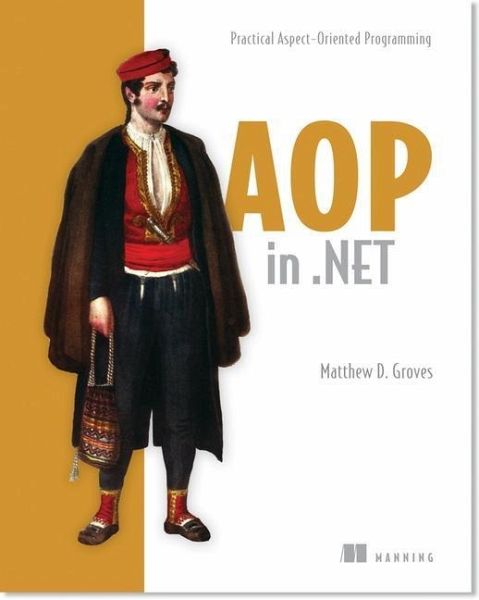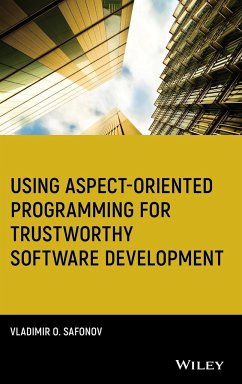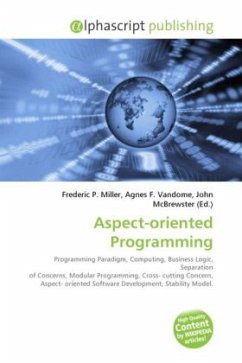
AOP in .Net
Practical Aspect-Oriented Programming
Versandkostenfrei!
Nicht lieferbar
RETAIL SELLING POINTS
A full step-by-step aspect writing tutorial
Tells when, why and how to use AOP
Works with real-world aspects
AUDIENCE
This book requires no prior exposure to AOP. Readers should know C# or another object oriented programming language.
Product Description
DESCRIPTION
Some functionality of an application, such as logging or authorization, cuts across all layers. In standard object oriented programming, it can be difficult to separate code that satisfies these cross-cutting concerns from code that implements the core behaviors of applications. Aspect-oriented programming (AOP) is a technique in which cross-cutting concerns are isolated into their own classes, making those behaviors much easier to maintain without having to worry about breaking anything else in an app and potentially saving hours of tedious work.
AOP in .NET introduces aspect-oriented programming and provides practical guidance on how to get the most benefit from this technique in everyday coding. Examples focus on modularizing non-functional requirements and developers will appreciate the straightforward introduction using familiar C#-based examples. AOP tools for .NET have now reached the level of practical maturity Java developers have relied on for many years, and this book discusses the leading options: PostSharp and Castle DynamicProxy.
RETAIL SELLING POINTS
A full step-by-step aspect writing tutorial
Tells when, why and how to use AOP
Works with real-world aspects
AUDIENCE
This book requires no prior exposure to AOP. Readers should know C# or another object oriented programming language.
ABOUT THE TECHNOLOGY
Aspect-oriented programming (AOP) is a technique to modularize non-functional requirements (such as logging, transaction management, authorization, etc) that often sprawl throughout object-oriented projects and tangle with business and UI requirements.
A full step-by-step aspect writing tutorial
Tells when, why and how to use AOP
Works with real-world aspects
AUDIENCE
This book requires no prior exposure to AOP. Readers should know C# or another object oriented programming language.
Product Description
DESCRIPTION
Some functionality of an application, such as logging or authorization, cuts across all layers. In standard object oriented programming, it can be difficult to separate code that satisfies these cross-cutting concerns from code that implements the core behaviors of applications. Aspect-oriented programming (AOP) is a technique in which cross-cutting concerns are isolated into their own classes, making those behaviors much easier to maintain without having to worry about breaking anything else in an app and potentially saving hours of tedious work.
AOP in .NET introduces aspect-oriented programming and provides practical guidance on how to get the most benefit from this technique in everyday coding. Examples focus on modularizing non-functional requirements and developers will appreciate the straightforward introduction using familiar C#-based examples. AOP tools for .NET have now reached the level of practical maturity Java developers have relied on for many years, and this book discusses the leading options: PostSharp and Castle DynamicProxy.
RETAIL SELLING POINTS
A full step-by-step aspect writing tutorial
Tells when, why and how to use AOP
Works with real-world aspects
AUDIENCE
This book requires no prior exposure to AOP. Readers should know C# or another object oriented programming language.
ABOUT THE TECHNOLOGY
Aspect-oriented programming (AOP) is a technique to modularize non-functional requirements (such as logging, transaction management, authorization, etc) that often sprawl throughout object-oriented projects and tangle with business and UI requirements.














